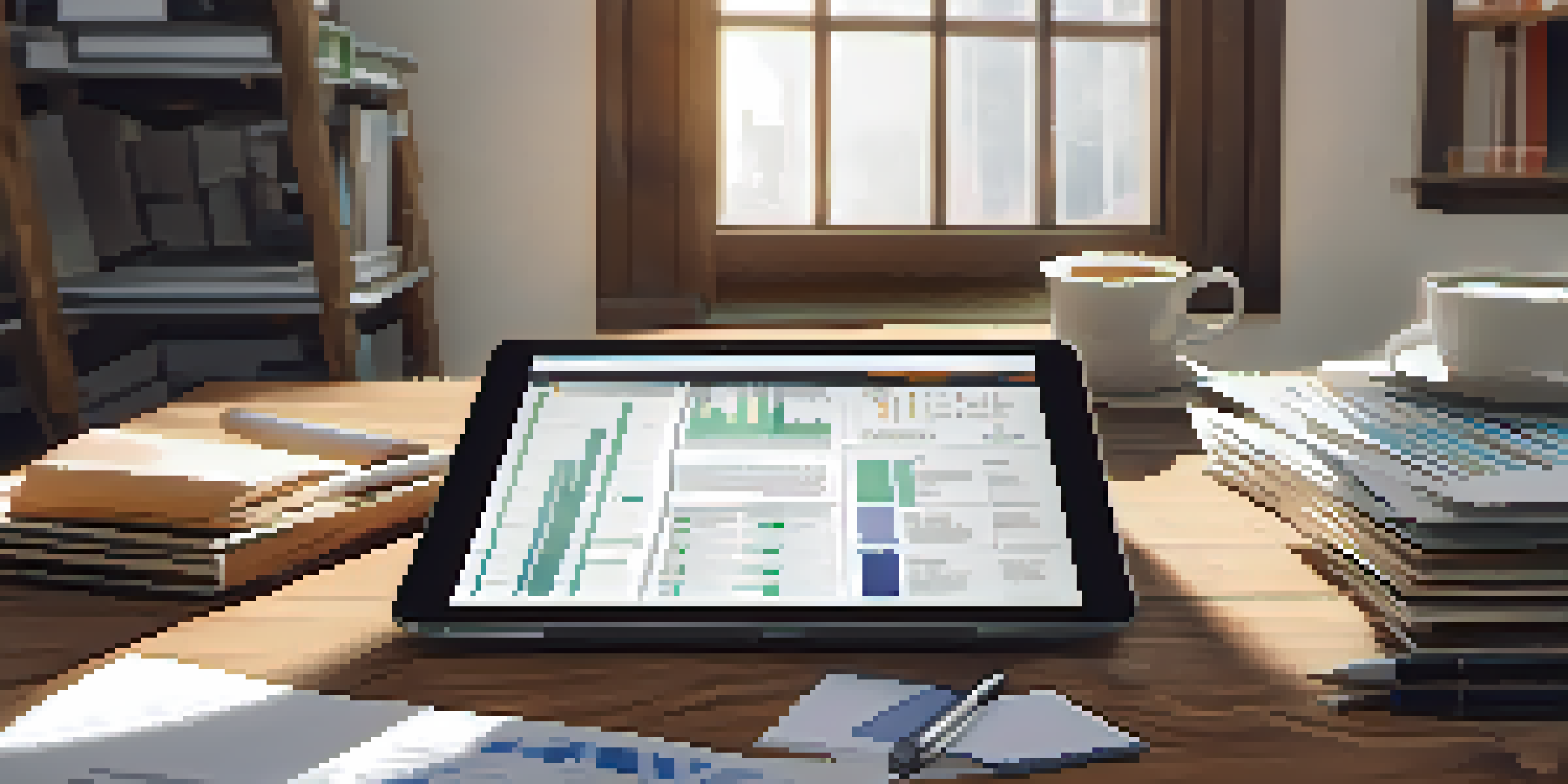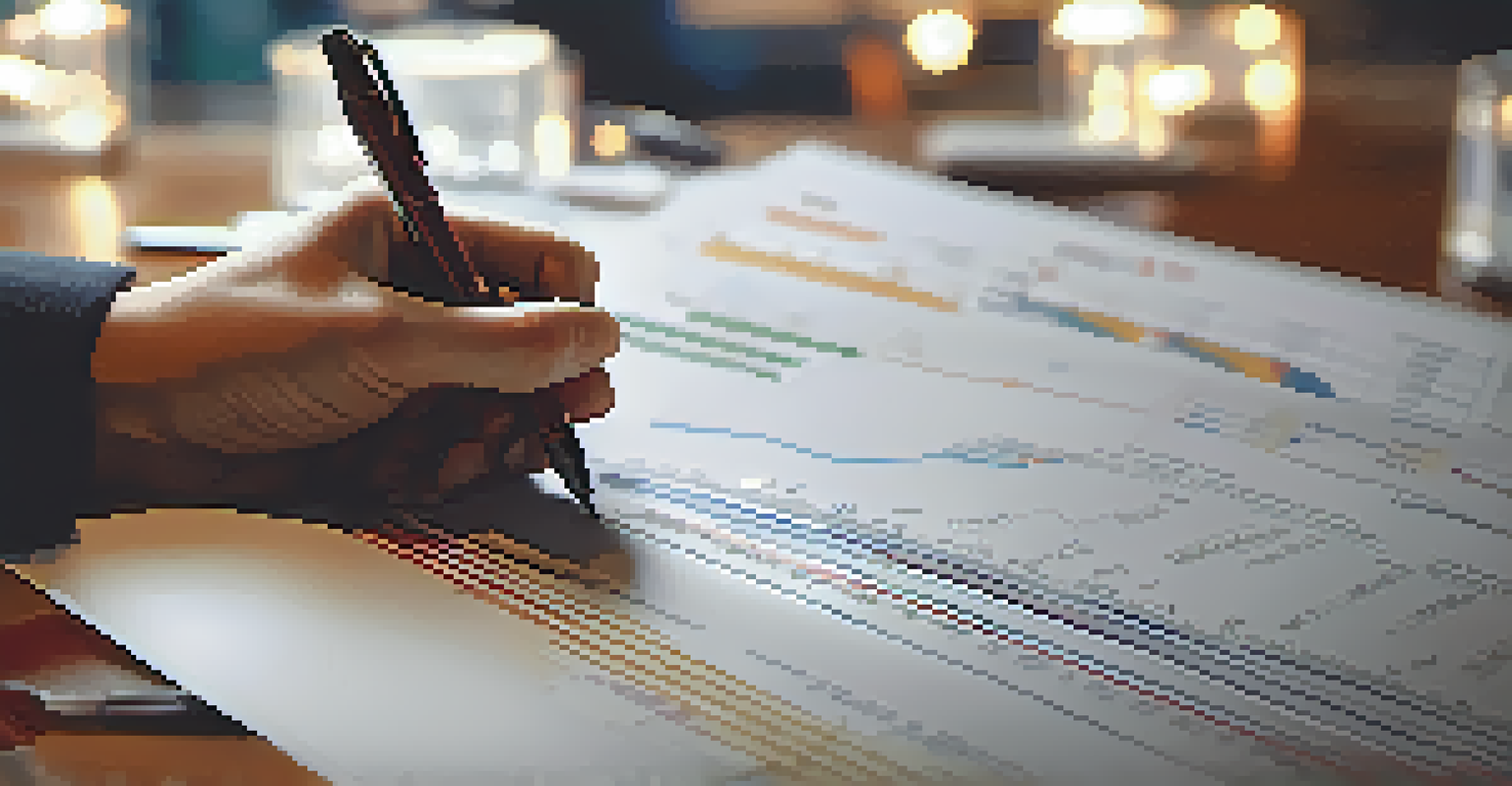Gathering Evidence for a Tax Dispute: A Comprehensive Guide

Understanding the Importance of Evidence in Tax Disputes
When facing a tax dispute, having solid evidence is crucial. It serves as the backbone of your argument and can make or break your case. Without adequate documentation, you may find it challenging to prove your claims or refute those made by tax authorities.
In law, nothing is certain but the expense.
Think of evidence as the fuel for your legal engine; without it, you risk running on empty. The more you gather, the more prepared you'll be to defend your position. This preparation not only boosts your confidence but also helps in negotiating with tax officials.
Ultimately, having a well-organized collection of evidence can lead to favorable outcomes, whether it’s a reduction in owed taxes or a successful appeal. A clear understanding of what constitutes evidence is the first step in this journey.
Types of Evidence You May Need for Your Case
Various types of evidence can support your tax dispute, including financial records, correspondence, and even witness statements. Financial records such as bank statements, receipts, and invoices can provide a clear picture of your financial situation. These documents help establish the accuracy of your reported income and expenses.

In addition to financial documents, any correspondence with tax authorities is vital. This includes letters, emails, or notes from phone calls that can demonstrate your attempts to resolve issues. These records can show your diligence and readiness to cooperate, which may work in your favor.
Importance of Solid Evidence
Having strong evidence is crucial in tax disputes, as it serves as the backbone of your argument.
Lastly, witness statements from accountants or financial advisors can add credibility to your claims. Their expert opinions can help clarify complex financial matters, making your case stronger and easier to understand.
Organizing Your Evidence: Tips for Success
Once you've gathered evidence, the next step is organization. A systematic approach will save you time and stress later on. Consider creating a digital folder or physical binder where you can categorize documents by type, date, or relevance to your case.
The best way to predict the future is to create it.
Labeling each document clearly and maintaining an index can also simplify the retrieval process. This way, when you're preparing for meetings or hearings, you can quickly access whatever you need. It's like having a well-organized toolbox; everything you require is right at your fingertips.
Moreover, maintaining a timeline of events related to your dispute can help contextualize your evidence. This timeline will guide you through the sequence of events and ensure you don't miss any critical details while presenting your case.
Gathering Witness Statements Effectively
Witness statements can be a powerful form of evidence, but gathering them effectively is key. Start by identifying individuals who can provide relevant insights into your tax situation. This could be accountants, former employers, or anyone familiar with your financial dealings.
When approaching potential witnesses, be clear about what you need from them. Explain the purpose of their statement and how it will support your case. A friendly and respectful approach often garners cooperation, making the process smoother for both parties.
Organizing Evidence for Success
A systematic approach to organizing your evidence can save time and stress, ensuring you have what you need for meetings.
Once you have their agreement, guide them on how to structure their statements. A well-written statement should include specific details, dates, and context to provide clarity. This not only strengthens your evidence but also reduces the chances of misunderstandings.
Digital Evidence: Utilizing Technology to Your Advantage
In today’s digital age, technology plays a significant role in gathering evidence. From emails to digital receipts, leveraging electronic records can bolster your case. Digital evidence often comes with timestamps, which can serve as credible proof of transactions and communications.
Make sure to back up all digital documents to avoid loss. Cloud storage services can be invaluable for keeping your evidence secure and accessible from anywhere. Just like having a safety net, this precaution ensures you’re always prepared for meetings with tax authorities.
Furthermore, consider using tools that help organize your digital evidence. Applications designed for document management can streamline how you categorize and retrieve records. This efficiency can save you time and keep you focused on the more critical aspects of your dispute.
Consulting Professionals: When to Seek Help
While gathering evidence can be done independently, sometimes the complexity of tax disputes calls for professional assistance. Tax professionals, such as accountants or tax attorneys, can provide valuable insights into what constitutes strong evidence. Their expertise can guide you in gathering the necessary documentation effectively.
Don’t hesitate to reach out if you feel overwhelmed or uncertain about your case. A professional can help you understand the nuances of tax law and identify critical evidence you might have overlooked. Think of them as a trusted guide on a challenging journey, helping you navigate through rocky terrain.
Professional Help is Valuable
Consulting tax professionals can provide essential guidance and insight into gathering and presenting your evidence effectively.
Moreover, having a professional review your evidence before presenting it can bolster your confidence. They can offer constructive feedback and suggest improvements, ensuring you are well-prepared for any potential challenges.
Presenting Your Evidence: Best Practices
Once you’ve gathered and organized your evidence, the next step is presenting it effectively. Clarity is key; ensure that your presentation is logical and easy to follow. Start with an overview of your case, followed by a detailed explanation of your evidence, ensuring each point ties back to your argument.
Using visual aids, like charts or graphs, can enhance your presentation. These tools can simplify complex information, making it more digestible for your audience. It’s like serving a delicious meal; presentation matters, and a well-plated dish is more appealing.

Finally, anticipate questions or challenges related to your evidence. Preparing responses in advance can help you remain composed and confident during discussions. This proactive approach can turn potential weaknesses into strengths, showcasing your thorough preparation.